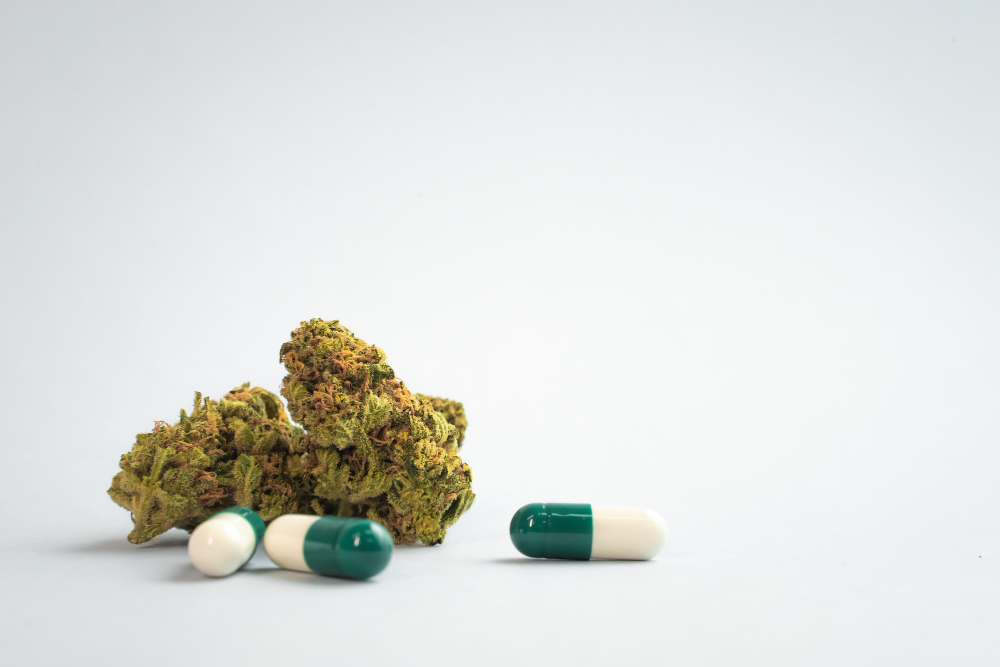The Blunt Truth: Mixing Marijuana with Antidepressants

There's a growing intersection between cannabis consumption and mental health, particularly when it comes to depression management. As conversations around the medicinal potential of marijuana continue to evolve, an important question arises: is it safe to mix cannabis with prescription antidepressants? This topic is mired with nuances that demand an informed, balanced approach. Whether you're a patient considering these options or a medical professional navigating these discussions, understanding the implications is crucial.
Navigating the Maze of Marijuana and Depression
Depression is a complex mental health condition, often managed through a combination of therapy and medication. As medical marijuana gains legal status in various regions, individuals seek alternative or complementary options to conventional treatment.
Unraveling the dynamics of marijuana's effects on depression is akin to navigating through a maze. While anecdotal evidence touts its efficacy in alleviating symptoms, conclusive scientific proof is nuanced and subject to various interpretations. It's important to underscore that the FDA has not approved marijuana as a safe and effective drug for treating depression.
The Cannabis Component: Knowing What's in Your Joint
Since the legalization of marijuana for medical and recreational use, understanding the components of cannabis products is more important than ever. Tetrahydrocannabinol (THC) is the psychoactive compound that induces the 'high' associated with marijuana, and cannabidiol (CBD) is the non-intoxicating compound often lauded for its potential therapeutic effects.
When considering depression, CBD has been the focus of much research as it may influence serotonin receptors in the brain. Serotonin is a neurotransmitter that plays a crucial role in regulating mood and is a target of many antidepressant medications. However, traces of THC in CBD products can complicate the interaction with antidepressants.
Interactions and Side Effects: A Potent Mix
There are two primary concerns when it comes to mixing marijuana with antidepressants—interactions between the compounds and amplified side effects. Some studies have suggested that consuming marijuana with antidepressants, such as SSRIs, may lead to the "cannabinoid-antidepressant" interaction, with potentially adverse outcomes like sedation and increased risk of suicidal ideation.
Additionally, mixing marijuana with antidepressants can increase the levels of certain drugs in the blood, leading to a phenomenon known as "cumulative toxicity." This scenario can heighten the risk of side effects, some of which can be life-threatening.
Professional Perspectives: Insights from the Medical Community
Physicians and mental health professionals are often on the frontlines of these dynamics, offering a blend of medical expertise and contextual understanding. Many are cautious about endorsing marijuana for depression due to the paucity of controlled trials and concerns about patient safety.
It's essential for individuals to have open conversations with their healthcare providers regarding their marijuana use, especially if they're also taking antidepressants. These candid discussions can help professionals tailor a treatment plan that addresses the patient's needs while minimizing risks.
The Legal and Socio-Cultural Lens: It’s Not Just About Medicine
The discussion on marijuana and antidepressants extends beyond the clinical domain, intersecting with legal frameworks and societal perceptions. The legal status of marijuana varies widely across the globe and within regions, engendering complex landscapes where individuals must navigate conflicting advice and regulations.
Furthermore, the stigma associated with marijuana use persists, often complicating open dialogue and the pursuit of balanced perspectives on its role in managing depression. Patients using marijuana as part of their treatment approach may be left feeling isolated or judged in contexts where it is not socially accepted.
Patient Empowerment and Informed Decision Making
Empowering patients to make informed choices is the cornerstone of effective healthcare. When considering the incorporation of marijuana into a depression treatment regimen, individuals must educate themselves on the potential benefits and risks, engage in collaborative discussions with their healthcare team, and monitor their own well-being.
Keeping a symptom journal, noting changes after marijuana use, and being vigilant about any emerging side effects can provide valuable information for personalizing treatment adjustments. Patients with concerns or questions should not hesitate to seek clarification and support from their healthcare provider.
Conclusion: Balancing Act or Slippery Slope?
The blurring of lines between marijuana consumption and antidepressant use prompts a crucial question: are we treading a careful balance, or teetering on a slippery slope? With every puff, dab, or edible, individuals with depression face an intersection of potential relief and heightened risk. The onus is on the collective – medical professionals, patients, and policymakers – to steer clear of the pitfalls and herald in an era of responsible, informed choices.
For local residents seeking clarity on medical marijuana rights and conditions in Altamonte Springs, FL, CSG Meds is your informed ally in this journey. Our commitment to bridging the gap between patients and their marijuana solutions is unwavering. Contact us today to know more and take the first step towards a balanced perspective on marijuana and depression management. Remember, the haze of uncertainty can only dissipate with the light of knowledge and guidance. If you're looking for a medical marijuana card in Altamonte Springs, FL, contact CSG Meds today for more information.